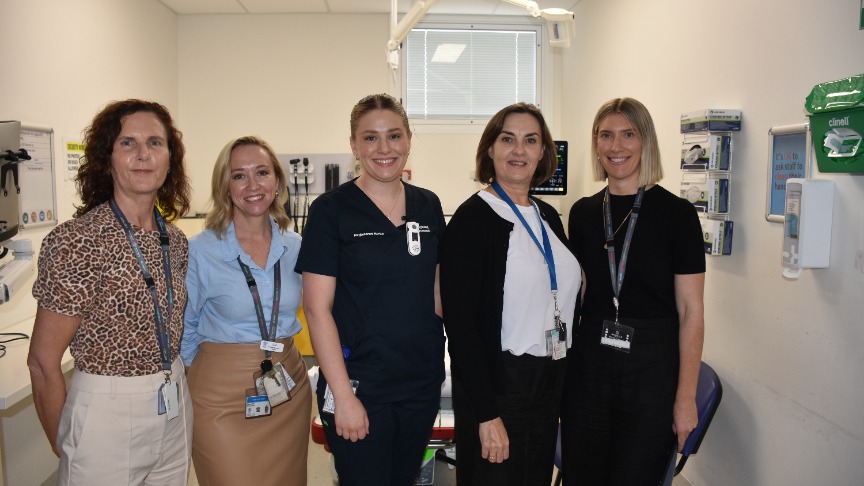 New model of care empowers nurses in Logan's ED
New model of care empowers nurses in Logan's ED
Logan Hospital’s Emergency Department is trialling a new approach to care aimed at helping patients receive treatment faster and get home sooner.
The Emergency Nursing Protocolised Care Project will enable specially trained nurses to deliver certain treatments and medications as part of their role.
Assistant Director of Nursing Debbie North said the model of care was designed to provide treatment quickly, reduce wait times, and improve patient satisfaction, all while maintaining high standards of safety and quality.
“Nurses involved in the project complete additional education and credentialing to ensure they are prepared for this expanded role,” Debbie said.
“This means they can deliver certain treatments under robust clinical guidelines, called Health Management Protocols, ensuring patients receive safe, consistent and efficient care without always needing to see a doctor.”
Registered Nurses Nadia, Chloe and Brooke have been selected to work in these roles during the project.
They said they were excited about how working to the top of their scope of nursing practice could improve patient experiences in the Emergency Department.
Chloe, who has worked at Logan for four years, said patients may notice small changes in how they receive care during the trial period.
“They might receive medication and treatment for certain conditions without needing to see a doctor first,” she said.
“It’s all guided by clinical protocols that ensure care is safe and effective. Importantly, nurses will still involve doctors when needed, and before patients are discharged, we’ll make sure they have the advice they need and know what steps to take next.”
Chloe added that the project was also a positive step for her career, helping her gain advanced practice hours toward a Nurse Practitioner qualification.
Metro South Hospital and Health Service (HHS) joins two other HHSs across Queensland to trial the new approach.
All protocols used in this model are endorsed by senior health leaders, including the Chief Executive of each participating HHS, and are aligned with the Queensland Medicines and Poisons Act 2019.coming weeks.